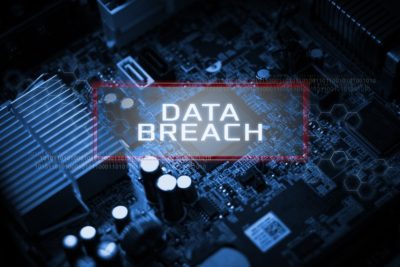Employee Cybersecurity Training - What's the Big Deal?
You've heard of the dangers - phishing, malware, ransomware, spam, hacking, social engineering. What if there was a way to protect your business from...
2 min read
Heather Trone Sep 18, 2024 8:00:00 AM

Malware, ransomware, phishing, spear phishing. These are all ways hackers can gain access to your business data. But have you heard of password spraying? Password spraying is an attack that attempts to access a large number of accounts with a few commonly used passwords. In traditional attacks, hackers would attempt to gain unauthorized access to a single account by guessing the password. Unfortunately for the hackers, after trying three to five commonly used passwords, they would get locked out of the account due to too many failed login attempts. With password spraying, the hacker uses a widely used password (such as '123456' or 'password1') and tests it against a large number of accounts. Once those accounts are tested against the password, the hacker moves on to another commonly used password. Password spraying takes some time to run, and as such, the hacker avoids getting locked out of accounts due to multiple failed login attempts.
Password spraying attacks typically go after single sign-on applications. Single sign-on is a solution that allows users to sign on once and gain access to all of the applications in an enterprise without having to sign in to each one separately. So, for instance, your company may utilize a single sign-on for users to access their computers every morning. When they sign on to the computer, this will automatically grant them access to their email without having to log in separately. It may also give them access to network shared folders and other items.
Citrix reported that hackers had successfully breached the company's network and stole sensitive personal information on current and formal employees and had access to internal assets for approximately six months. Hackers used password spraying to take advantage of weak employee passwords and gain entrance into the company network.
This type of attack can be especially hard to deal with. Not only was employee data compromised, but that of their dependents and beneficiaries. Employees tend to lose faith and trust in their employer when breaches occur, and it is hard to understand the long-term ramifications that this may have on them. Companies can proactively monitor the dark web with a dark web scan service to find out if employees' data is on the dark web, and alert them to change passwords accordingly. Companies will also want to look for a personal identity protection offering to monitor their information.
Password spraying attacks can cause much damage for a company. Just changing passwords is not enough anymore to prevent breaches because new passwords are just as easily stolen. Users also tend to change their passwords in a predictable way, for instance, adding a 1 on the end of an old password. To prevent password spraying attacks, companies can institute an authentication solution that does not require a password as a first factor of authentication (think an iPhone or iPad that scans your fingerprint or face). Companies can also implement multi-factor authentication, which forces users to utilize multiple methods to log into accounts.
For more information on how to prevent password spraying, contact Fraser today! We help keep your company safe from cyberattacks.

You've heard of the dangers - phishing, malware, ransomware, spam, hacking, social engineering. What if there was a way to protect your business from...

Data breach dangers are now a reality for businesses! Guesstimates put the number affected number of people at anywhere from 100 million to upwards...

Fishing, phishing, spear phishing?! It's often hard to know the difference between types of cyber attacks. Spear phishing is a highly targeted form...